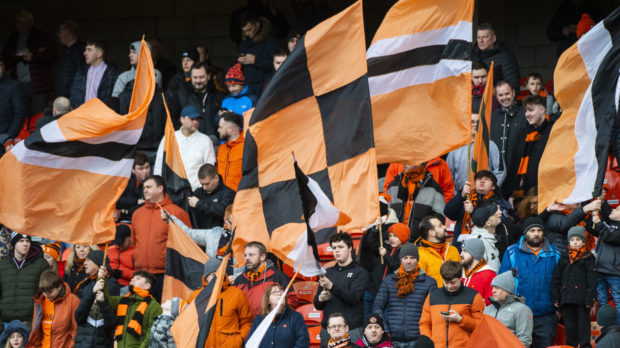Dundee United won’t be short of candidates for their manager’s job.
Getting the right individual, though, is a balance of knowledge, skill, and luck.
Someone with the skills of Jurgen Klopp, valuing the work ethic and camaraderie, would be ideal, but this is Scottish football so let us deal in reality rather than dreams.
Hard work, patience and trust are the Liverpool manager’s watchwords and if United can unearth someone with a modicum of his many talents they’ll have struck gold.
Will it be experience or youth?
Will it be a manager based in Scotland, or one from the sporting director’s contacts book in England?
Whatever route United take, their squad faces a league where every thought and move is executed a fraction quicker than the division they’re coming from.
Over 90 minutes, and over every game, that transition can quickly exhaust players who can’t adapt to the increased demands.
United need a manager who can squeeze the best out of what he inherits and can also add judiciously to that with new signings.
I assume the new manager will have to work within a framework which requires a close relationship with the sporting director.
It’s a role which is both unusual in Scotland and perhaps also misunderstood.
In theory splitting the duties of recruitment and scouting, leaving the manager to concentrate solely on coaching and improving the team is ideal, but it could be too much of a culture challenge for some who demand total control.
United’s new owners decided at the outset that the old model of absolute authority for a manager was not their preferred direction of travel.
Their approach requires a complete buy-in from any new manager.
I’d expect any new appointment to be on board completely with that arrangement.
Dundee fans should be alarmed with the news that players are being asked to take 30-per-cent wage reductions.
Assistant boss Jimmy Nicholl and a sports scientist have already left the building as the cuts bite and now the James McPake’s men are about to take a hit, if they agree to the reductions.
Dundee are in the same boat as many others financially, with Aberdeen and Hibs also looking to players to take reductions and deferrals.
With season ticket sales only around a tenth of what they would normally be, fans are now in no doubt that their money is urgently needed.
Amid uncertainty over whether their pandemic insurance policy is worth the paper it is written on, these are grim times for Dundee supporters.
Tim Keyes has invested heavily in his time in charge, but with businesses everywhere seeing their core earnings hammered, he may be finding it too heavy a burden to fund the club at previous levels.
The Dark Blues are already living rent free thanks to the magnanimity of stadium owner John Bennett, who has helped both city clubs at different times, in true philanthropic style.
Whether this is the beginning of a much stricter financial regime, seeing earlier grandiose plans for a new stadium quietly shelved, or a sensible move to keep the Dens doors open, only time will tell.


